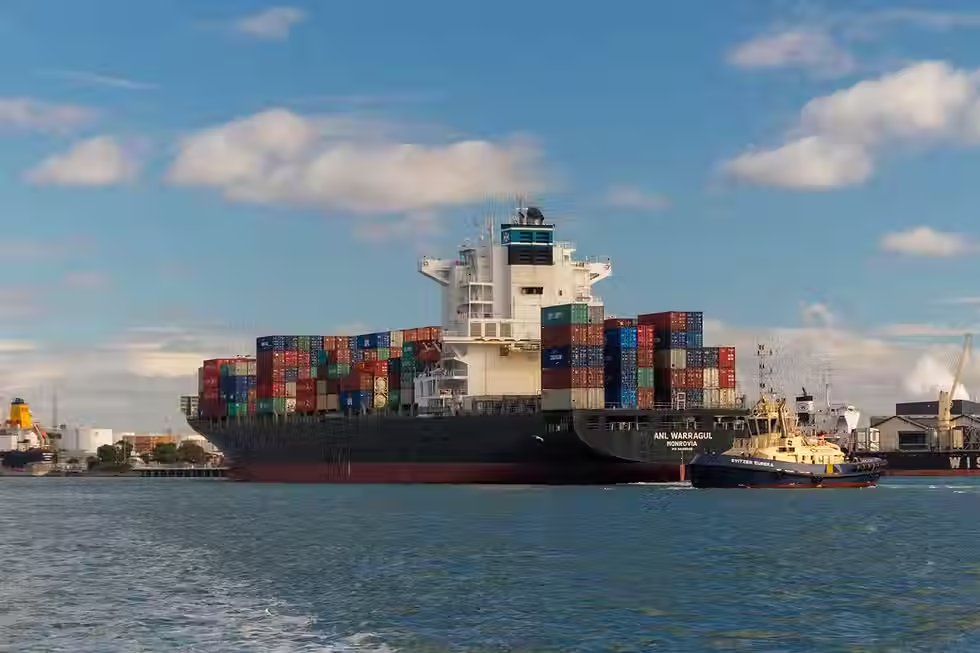What is an Export Permit in Singapore and Why Do You Need It?
- declarationnexus
- Aug 9, 2024
- 4 min read
Updated: May 6, 2025

Welcome to the world of commerce in Singapore! Understanding how to export from this active city-state requires learning the details of export procedures. Whether you’ve been exporting for years or are just starting out, knowing Singapore customs and getting appropriate licenses can streamline your business, and open up new markets globally.
In other words, needing an export permit is not a mere formality—it is a necessary step towards growing your company internationally.
Shall we start? Here is everything you need to know about export permits in Singapore.
Understanding Export Permits in Singapore
An export permit in Singapore acts as your gateway for sending cargo across borders. Governed by Singapore Customs, these permits ensure that your business complies with both local and international trade laws.
The significance of an export permit cannot be overemphasized as it goes beyond just documentation; it also plays the role of controlling what goes out of the country itself.
In this case, whether you’re shipping high-tech electronics, traditional textiles or strategic goods, having the right permits is crucial. Each cargo exported from Singapore has to be declared to customs through the TradeNet system so that they meet stringent regulatory standards before leaving.
Thus, having an export permit is crucial for any business looking to maintain legal integrity and operational smoothness in the international market.
Why Do You Need an Export Permit?
You need a permit before you can export goods from Singapore. Here are the top reasons why:
Compliance with Legal Requirements
To keep within legal boundaries while shipping cargo abroad from Singapore, an export permit is required without any exception. This way local and international regulations will not pose any threat to your business hence you will be on the safe side legally. It's an essential tool for ensuring that all your exports meet the stringent standards set by authorities.
Facilitating International Trade
An export permit streamlines your entry into global markets. By simplifying customs clearance and ensuring that your goods align with international standards, these permits make international shipping smoother and faster. This efficiency can enhance your operational capacity and boost your business’s global reach.
Ensuring National Security
Export permits are critical for controlling the movement of sensitive or restricted items across borders. This oversight helps prevent illegal exports, including those that could threaten national and international security. By monitoring exports, Singapore maintains control over strategic goods that could otherwise be misused if placed in the wrong hands.
Protecting Economic Stability
Export permits help maintain control over what leaves and enters the country thus enhancing Singapore's economic position. This regulation provides for a fair trading environment that promotes national economic stability while protecting local industries from unfair competition and market saturation.
Building Business Reputation
Possession of required export permits enhances the integrity of a company and serves as evidence that it adheres to lawful and moral principles when carrying out its activities. It makes your company’s reputation among partners and customers stronger and preferred by those who are concerned about compliance issues in their businesses.
Declaration Nexus can be your trusted declaring agent. We can help you with your permit application for a more seamless export of goods from Singapore to anywhere in the world.
Key Regulations and Compliance for Exporting Goods

Navigating the landscape of export regulations requires a solid understanding of various compliance measures and customs processes. Here’s what you need to know:
Understanding customs export and excise duties: These are applicable depending on the types of goods you intend to export and their declared value. Familiarizing yourself with when and how these duties apply can save you from unexpected costs and legal issues.
Zero-GST warehouses and Free Trade Zones (FTZs): Utilizing these facilities can offer significant benefits for exporters. To get an idea of how this works, imagine that goods stored here are treated as if they are outside of Singapore’s customs territory, which can defer or eliminate the GST until the goods are removed or exported.
Compliance with international agreements and local regulations: It is important to ensure that your exports conform to both Singaporean domestic law and any international treaties that Singapore has signed. This will not only keep you away from penalties but also make your trade relations smoother.
Penalties for non-compliance: Not knowing or paying a blind eye on export regulations could lead to severe financial consequences in terms of huge monetary fines and other kinds of punishment. Every exporter needs to know what non-compliance means for them in order to keep their trading license valid and their name spotless within the industry.
Final Thoughts
Singapore being a dynamic marketplace requires businesses seeking success to understand and acquire essential export permits. These permits comply with the law while facilitating a harmonized system across borders ensuring national security, promoting economic stability and enhancing the image of your business organization.
Navigating through the intricate web of customs, regulations as well as duties is necessary. Therefore, by following these guidelines and getting appropriate export permits, your company can confidently enter new markets. Remember that complying is more than just meeting regulations—it is about keeping business sustainable for exporting goods internationally.




